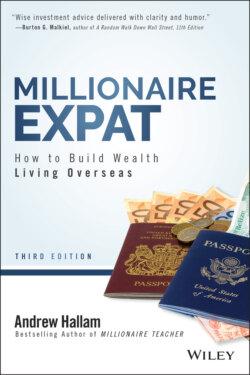Читать книгу Millionaire Expat - Andrew Hallam - Страница 28
American Expatriates Run Naked
ОглавлениеUnlike most global expats, Americans can't legally shelter their money in a country that doesn't charge capital gains taxes. And actively managed mutual funds attract high levels of tax. There are two forms of American capital gains taxes. One is called short‐term, the other long‐term. Short‐term capital gains are taxed at the investor's ordinary income tax rate. Such taxes are triggered when a profitable investment in a non‐tax‐deferred account is sold within one year.
I can hear what you're thinking: “I don't sell my mutual funds on an annual basis, so I wouldn't incur such costs when my funds make money.” Unfortunately, if you're an American expat invested in actively managed mutual funds, you sell without realizing it. Fund managers do it for you by constantly trading stocks within their respective funds. In a non‐tax‐sheltered account, it's a heavy tax to pay.
Stanford University economists Joel Dickson and John Shoven examined a sample of 62 actively managed mutual funds with long‐term track records. Before taxes, $1,000 invested in those funds between 1962 and 1992 would have grown to $21,890. After capital gains and dividend taxes, however, that same $1,000 would have grown to just $9,870 in a high‐income earner's taxable account.6 American expats, as I'll explain in a later chapter, must invest the majority of their money in taxable accounts. If that sounds depressing, it's good to know that index fund holdings don't get actively traded, so they trigger minimal capital gains taxes until investors are ready to sell. And when such holdings are sold, they're taxed at the far more lenient long‐term capital gains tax rate, as opposed to the higher short‐term capital gains tax rate paid by investors in actively managed funds.
